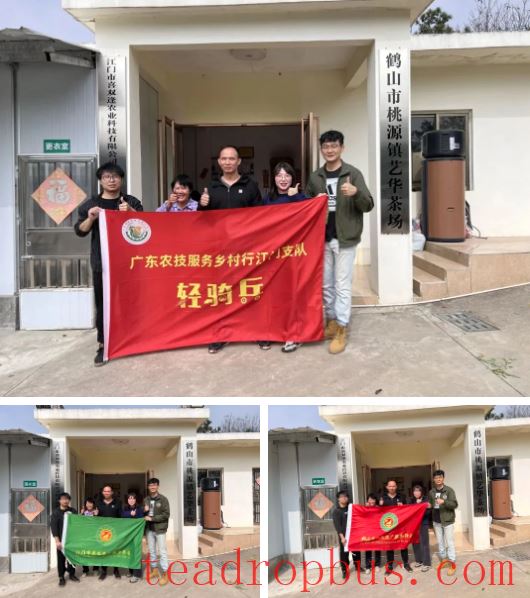On January 17, the Jiangmen Agricultural Technology Extension Service Platform and Heshan Agricultural Technology Extension Service Station, in conjunction with the “Light Cavalry” agricultural technology service team of the Jiangmen branch for rural areas, arrived at the Yihua Tea Garden's tea plantation base in Taoyuan Town, Heshan City. They invited Guangdong Province's Rural Local Expert Wu Yihua to conduct a live-streamed agricultural technology extension activity about winter management of wild-released tea gardens.
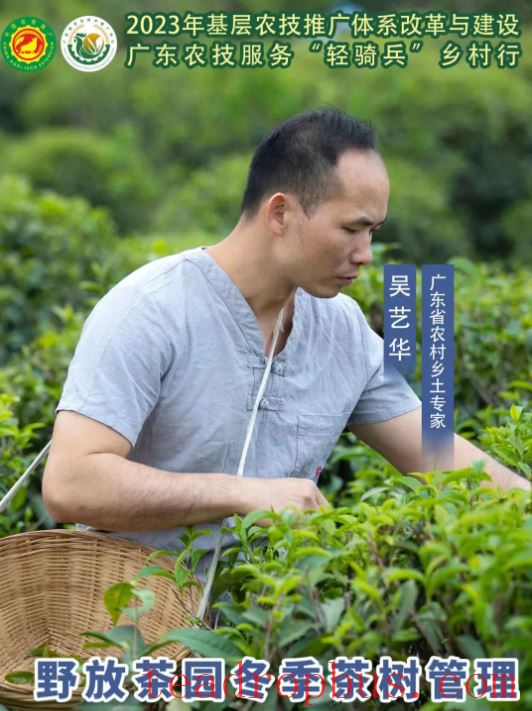
The Yihua Tea Garden was formerly known as the Dapinggang Tea Garden in Zhongxin Village, Taoyuan Town, Heshan City. It used to be an abandoned tea garden covering nearly one hundred mu, with tea trees planted in the 1980s, including high-aroma varieties like Huangzhi Xiang and Huangjin Gui. Due to years of being left to grow wild, these trees naturally adapted into unique local high-aroma varieties. As Heshan City prioritized the revitalization of its tea industry as part of its rural revitalization efforts, Guangdong Province's Rural Craftsman Engineer and veteran Wu Yihua discovered this tea garden and recognized the uniqueness of the tea tree varieties. Through his own trials, he found that the products possessed the quality characteristics of Heshan Black Tea's geographical indication product: sweet and mellow flavor with honey notes and a golden rim, floral aroma with a honey-like taste, sweet and smooth, and highly durable when brewed. With a deep affection for tea, Wu Yihua believed this was a rare local germplasm resource and decided to lease the tea garden to protect and develop this unique tea tree variety. After meticulous management, the wild-released tea garden came back to life, with lush and verdant tea bushes, abundant branches and leaves, and fresh tender shoots sprouting vigorously, full of vitality. Currently, the Yihua Tea Garden produces several categories of tea products, including Heshan black tea, wild-released Xiang Yin green tea, Yellow Tea, Oolong tea, and white tea. This year, the spring tea product Heshan black tea (Mingqian Chunmei) won a gold medal at the Eighth Asia Pacific Tea Award. The garden retains many tea trees that are two stories tall, which require climbing ladders and using hooks to pick the tea leaves, despite the labor-intensive process. Wu Yihua is reluctant to prune them short, stating that they are a unique germplasm resource. When the weather and season are suitable, he plans to use his own nursery to select and improve the variety, allowing this local variety to expand. The garden originally had many olive trees and peach trees, which provided shade and beautified the tea garden. In March during the peach blossom season, pink and red peach blossoms bloomed, attracting many visitors to enjoy the flowers and tea. The garden also plans to plant Yunnan cherry trees and pink sword beans this year to beautify the environment and transition from simple tea production to agritourism and tea Tourism. Additionally, there is an abundance of surplus labor in nearby villages, and the garden's management can provide employment opportunities for some villagers and use its technical advantages to guide surrounding farmers interested in developing tea gardens, contributing to industrial development, rural revitalization, and high-quality development. This will enable the tea garden to regain its glory and revitalize the Heshan tea industry.
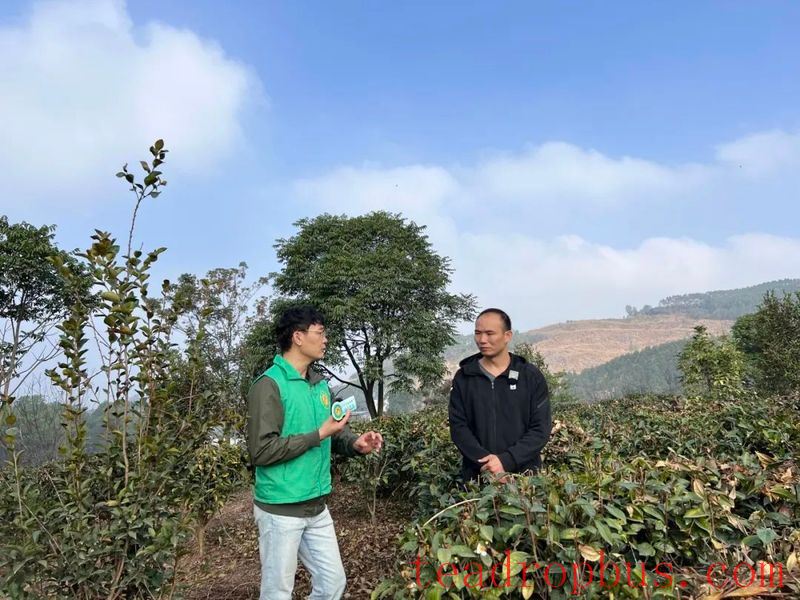
Expert Wu Yihua first introduced the importance of winter management of tea trees. He pointed out that winter is the dormant period for tea trees and a critical time for tea garden management. Through proper winter management, the resistance of tea trees can be improved, promoting the sprouting and growth of spring tea in the following year and enhancing the quality and yield of tea leaves.
In light of the characteristics of wild-released tea gardens, Expert Wu Yihua elaborated on the key technical points for winter management of tea trees. He emphasized the importance of pruning, noting the need for timely light pruning and deep pruning to remove diseased, weak, and dead branches, improving ventilation and light penetration and balancing growth. Additionally, he explained how to carry out garden disinfection, fertilization, and frost protection measures to ensure the safe winter survival of tea trees.
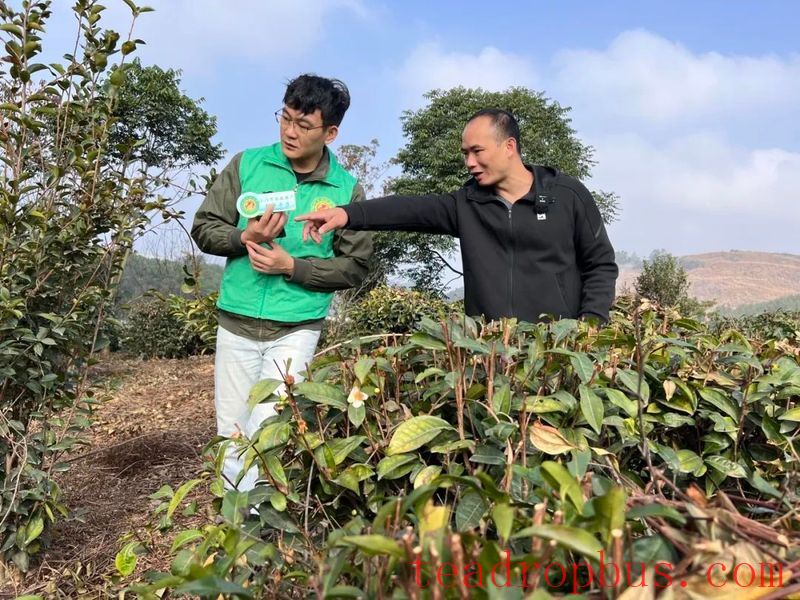
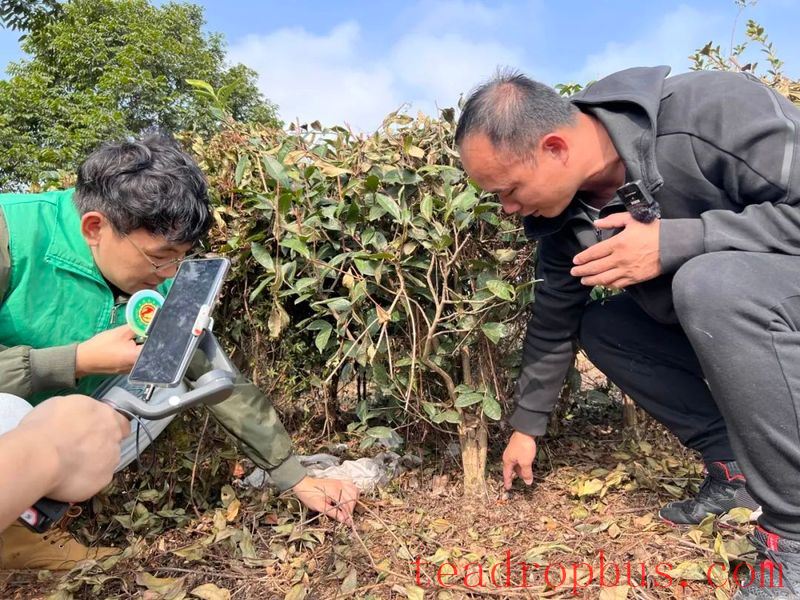
During the live stream, Expert Wu Yihua also interacted with farmers, answering their questions and addressing their concerns. He patiently and meticulously answered the technical challenges faced by farmers in winter tea garden management and provided specific guidance and suggestions.
This agricultural technology extension live-stream activity was conducted through a combination of online and offline methods, attracting the attention and participation of many farmers. Through Expert Wu Yihua's explanations and guidance, farmers gained a deeper understanding and awareness of winter tea tree management, expressing their intention to actively apply these techniques in their own tea gardens to improve the quality and yield of tea leaves.
The Jiangmen Agricultural Technology Extension Service Platform and Heshan Agricultural Technology Extension Service Station stated that they will continue to strengthen cooperation with relevant enterprises and organizations to conduct more practical agricultural technology extension activities, providing better guidance and support to farmers. At the same time, they hope that such activities will promote the popularization and application of agricultural technology, contributing to sustainable agricultural development and improving the income levels of farmers.
